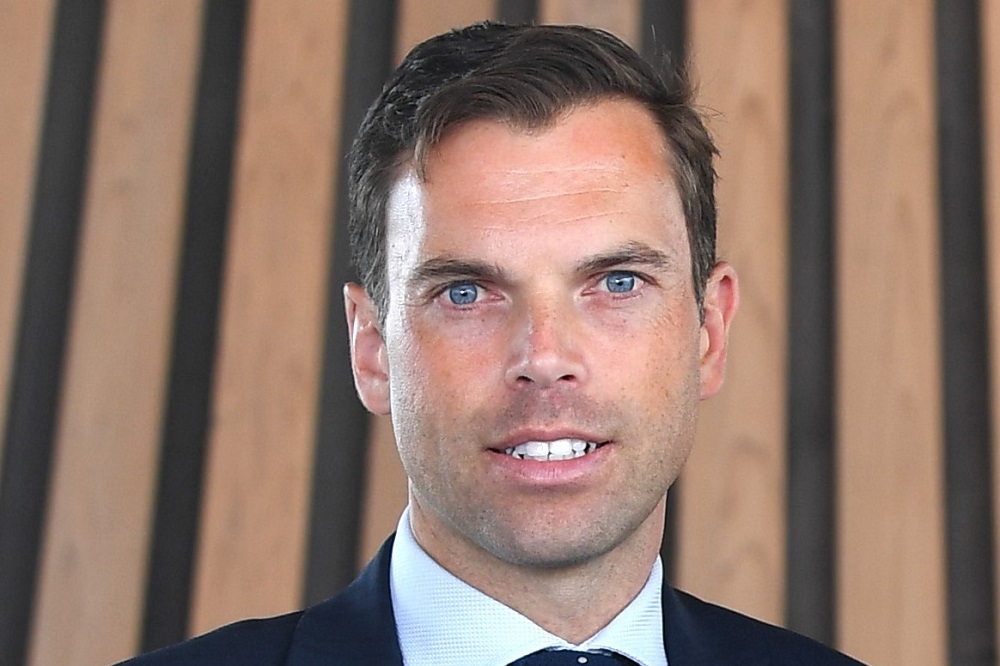Calls for UK Government to pay for RAAC repairs

A Member of the Senedd says the UK Government should be footing the bill for repairs to Welsh buildings affected by the dangerous building material RAAC.
The use of reinforced autoclaved aerated concrete in Welsh schools and other public buildings was signed off by UK Ministers before the Welsh Parliament was created in 1999.
So far, RAAC has only been identified in two Welsh schools, both on Anglesey, but further checks are ongoing.
The Welsh Government has indicated it expects expects to have a full picture of what remedial work is required by Friday.
Ken Skates, the MS for Clwyd South, says Welsh Ministers shouldn’t have to find money for repairs to correct ‘mistakes’ made by the UK Government.
During First Minister’s Questions yesterday (Tuesday) he asked Mark Drakeford for a statement on RAAC in Welsh buildings, and was told: “Officials are currently undertaking a comprehensive review of all buildings on the Welsh Government estate, as well as the wider public domain, to establish whether RAAC is present or likely to be present.
“Plans are being developed to remediate risk where necessary, and the returns received to date indicate only isolated instances of RAAC identified so far in Wales.”
Mr Skates said the low number of school’s identified in Wales was “in no small part due to the huge sums of money that Welsh Labour has invested in the 21st Century Schools programme”.
The Welsh Government initiative is the biggest school modernisation programme carried out since the 1960s and according to Mr Skates, more than £20m has been spent on improving school buildings in his constituency of Clwyd South alone.
Devolution
In a question to the First Minister, Mr Skates asked: “Given that the issue predates devolution, and the use of RAAC in Welsh public buildings was signed off by UK Government departments, can we assume that it will be UK Government that will foot the repair bills and that it won’t fall on Welsh Government to put those mistakes right?”
Mr Drakeford told the Senedd: “It’s a very important point that Ken Skates raises.
“We ought to be confident of that because the fiscal framework and the rules that underpin the relationship between devolved governments and the UK Government on these matters is clear – that liabilities that are incurred because of decisions made prior to devolution remain the responsibility of the UK Government.
“It’s not been a responsibility that they have been willing to shoulder in more recent times. I’ve had this discussion a number of times now with UK Ministers in relation to coal tip safety, where the liabilities that we see today are the result of actions taken far before devolution ever began.
“I believe that in this case the same principle should apply in just the way that Ken Skates set out. Thankfully, so far – and the work is still ongoing, and we’re making sure that it’s done carefully and comprehensively – the impact of RAAC in public buildings in Wales is at the modest end of the spectrum.
“But, in the longer run, these buildings are not going to get any better, are they? That’s what we know about RAAC, that it is a progressive condition, and while we keep it carefully under review, more buildings in future are going to need to be attended to.
“And that’s why establishing that principle that the body who pays should be the body that made those decisions in the first place is the one that we will pursue in discussions with the Treasury.”
RAAC is a lightweight form of concrete which was used in the construction of schools, colleges, and other buildings from the 1950s until the mid-1990s.
The Health and Safety Executive has warned that RAAC is now beyond its lifespan and could collapse without notice.
Support our Nation today
For the price of a cup of coffee a month you can help us create an independent, not-for-profit, national news service for the people of Wales, by the people of Wales.




